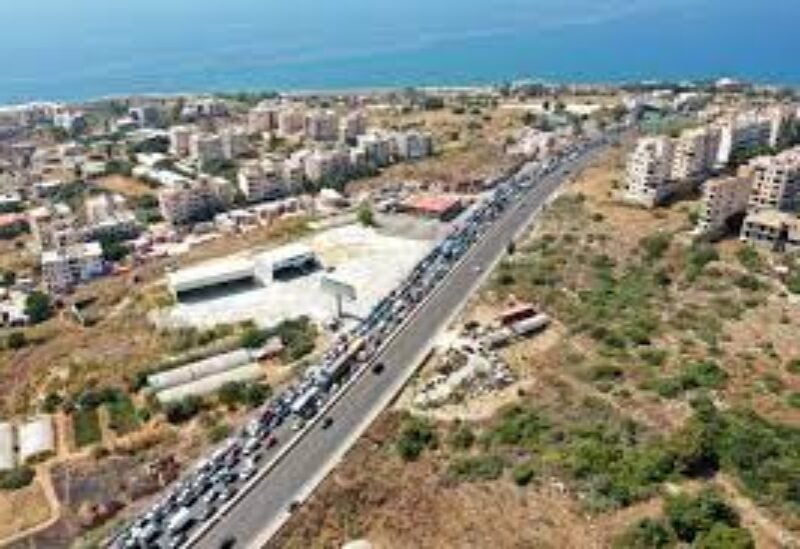
Lebanon’s financial catastrophe is rapidly pulling the country into instability, forcing its warring leaders to choose between finally dealing with the issue or facing even more chaos and insecurity.
Fuel shortages have paralyzed even vital services, with miles-long lines building at gas stations with little or no gasoline to sell. The economic catastrophe that has been causing Lebanese increasing suffering for two years has reached a breaking point this month.
Anarchic situations have erupted as a result of gasoline shortages, which the insolvent state’s security forces have failed to quell. Soldiers have been hit by gunfire while attempting to maintain order.
The country is running out of critical medicines, and the U.N. is warning of a looming water crisis, but meanwhile the ruling elite bickers over the seats in a new government.
Hezbollah, a Shi’ite faction, recently decided to go it alone and import Iranian gasoline, adding a new dimension to the situation. Long a part of Lebanon’s political structure, the highly armed organization, which the US has classified as terrorists, claims it just wants to alleviate the shortages.
However, opponents claim it is aimed at extending Iran’s already extensive influence and drawing Lebanon more into its circle, complicated the route forward for a country relying on Western funding and further eroding its authority.
The crisis, which is the result of decades of official corruption and unsustainable funding, has already forced more than half of the country’s 6 million people into poverty and decreased the currency’s value by 90%.
On Aug. 11, Lebanon’s central bank announced that its dollar reserves had been exhausted to the point that it could no longer fund gasoline imports at discounted exchange rates.
The interim administration then agreed to hike fuel prices on Saturday. However, even the new higher prices are still only a fraction of the true price, with additional central bank borrowing covering the gap until the end of September.
Economists say the move is no solution, as it leaves open a huge incentive for smuggling and hoarding.
An eventual rise to market prices seems inevitable as dollars run out. In the meantime, a black market has flourished where gasoline is sold in plastic bottles at hugely inflated prices.
Thefts of fuel tanker trucks have become a regular occurrence in terms of security concerns. Last week, a fuel tank burst in northern Lebanon, killing at least 28 people as people scrambled for its petroleum.
“Many small gangs have realized they can forcefully grab any tanker on the road,” claimed a security officer who did not want to be identified. According to the source, at least eight instances a day have occurred at gas stations or targeted tankers.
On Friday, an international support group led by France and the United States stated that the “quickly escalating crisis emphasizes the critical need of creating a government competent of managing the situation.”
“How much worse can it get? All we can do is pray,” said Jihad Fakher Eddine after waiting for seven hours for gas.
GOVERNMENT SOON?
The state’s failure was encapsulated in a public row between the president and the central bank over fuel subsidies, with the bank’s governor Riad Salameh declaring that nobody was running Lebanon, where many of today’s politicians were warlords in the 1975-90 civil war.
President Michel Aoun, the Maronite Christian head of state, and the Sunni Muslim Prime Minister-designate Najib Mikati have yet to clinch a deal on the government to replace the administration that quit after the Beirut port blast a year ago.
The delay is over a couple of names, political sources say, more than enough to spoil the process in a system where cabinet deals are prone to being derailed by factional interests.
Alain Aoun, a senior member of the political party founded by the president and his nephew, said he believed a government would be formed soon. “The price of failure – a rapid descent into more chaos – is too high,” he told Reuters.
If a government is agreed, Mikati plans to resume talks with the International Monetary Fund, which wants to see reforms including bringing public finances into order, rehabilitating the banking system and restructuring public debt.
The ruling elite believe about $860 million worth of new IMF reserves should provide some breathing space.
But reforms are vital, and some doubt whether a new government can succeed where the outgoing cabinet failed.
Elections are due next spring, to be followed by a whole new round of government formation negotiations.
“Will there be the courage to undertake these reforms? I doubt it. The policymakers seem to be interested in tiding things over and kicking the can down the road until elections next year,” said Nasser Saidi, a former economy minister and central bank vice governor.
“You need immediate reforms. You need shock therapy to restore confidence,” he said.
Meanwhile, if Hezbollah can deliver steady supplies of Iranian fuel, the situation will become even more complex. Its opponents say the move could expose Lebanon to U.S. sanctions.
“While what they are doing now is symbolic with this barge of diesel, it could be a starting point for something bigger,” said Ghassan Hasbani, a former deputy prime minister and member of the Christian Lebanese Forces party.
“If it persists and they can carry on doing that at a larger scale, then we would be seeing a start of trying to fragment the country,” he told Reuters.
Hezbollah leader Sayyed Hassan Nasrallah said on Sunday that the group was not trying to replace the state and that a second Iranian fuel shipment would be sailing in the coming days.